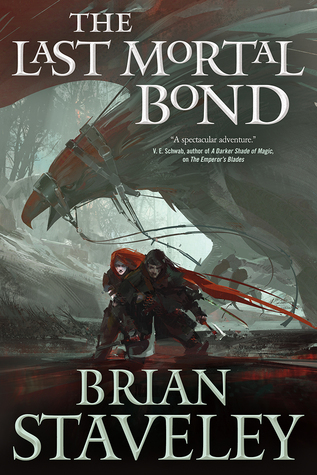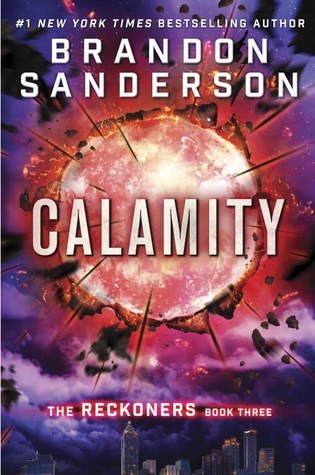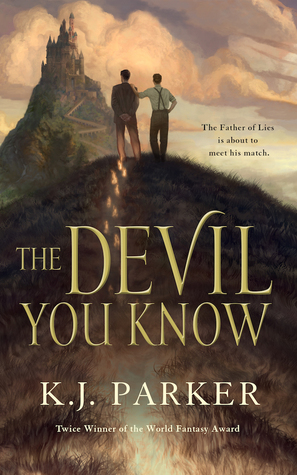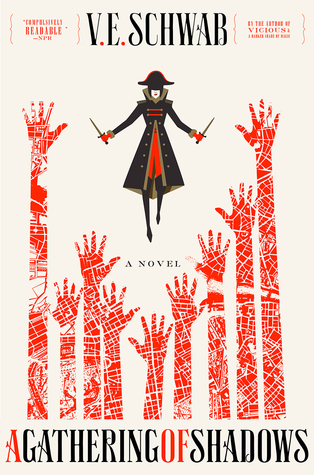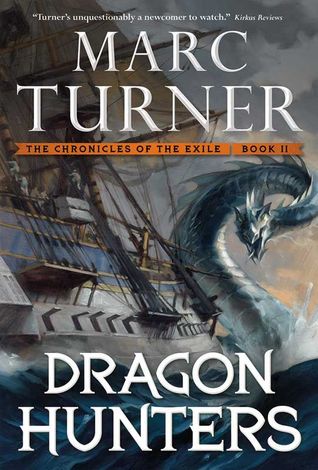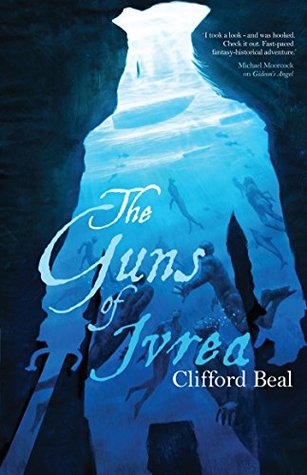The Last Mortal Bond is a truly epic conclusion to the The Unhewn Throne trilogy. I just can’t stress enough how much I feel Staveley has grown as a writer since Emperor’s Blades. I felt the first book, The Emperor’s Blades, was unfairly over hyped, setting a level of expectation that I just didn’t feel like the book could live up to. Don’t get me wrong, I absolutely enjoyed it or I would not have read on, but it was not without its issues. Providence of Fire set a new level of standard for the series, it was a fantastic second installment and the real test was going to be if that level of story telling could be maintained in the third and final book. I’m happy to say it succeeded. Easily. This series as a whole undoubtedly lives up to the expectations that were set for Staveley’s debut novel. This is a thrilling book that really ties up so many things, and was still able to deliver unexpected twists. All three of the Malkeenian siblings have changed tremendously since that first book, it is amazing to think back to the young naive characters they were when this series started. Sadly, with…
Calamity is the concluding novel of The Reckoners series and it was nothing like I expected, but I have yet to decide whether I feel positively or negatively about that. In truth, I feel torn because even though I enjoyed this book overall, for the first time in a long while I ended a Brandon Sanderson novel without feeling completely satisfied. Here came the long awaited answers to the questions that have been with us since the beginning, but I’m not sure that they really resolved all that much for me. It probably goes without saying, but it’s worth mentioning anyway: This will be a spoiler-free review for Calamity, but if you haven’t read Steelheart and Firefight yet, keep in mind I may reference events from those preceding volumes. Following the devastating events of the last book, David and the Reckoners have left Babilar for Ildithia, tracking down the whereabouts of Jonathan “Prof” Phaedrus. The former Reckoners leader had ultimately succumbed to the darkness of his High Epic powers, but rather than attempting to kill Prof outright, David believes that his friend can still be saved. To do that, he’ll have to uncover Prof’s weakness, the thing that an Epic…
Kingfisher is not your everyday fantasy, nor is it the kind of book I usually enjoy. Blurring the lines between genres, this ethereal and strangely abstract tale should have stymied me on so many levels, so no one is more shocked than I am at how deeply it resonated with me. It shouldn’t have worked for me—and in truth, not every aspect of the story did—but I did find certain elements greatly appealing. It helped too that I went into this book with no preconceptions and absolutely no clue what to expect at all. So I was surprised to discover early on that Kingfisher appears to be a retelling of—or at least, a story with many allusions to—the quest for the Holy Grail. It occurred to me then, that in spite of the popularity of stories about King Arthur and the knights of his court, I’ve not actually read much Arthurian fantasy. That being said, it doesn’t taken an expert to see that McKillip’s take on the genre is special, wildly inventive, and atypical of many others. The beginning of the book can only be described as abrupt, introducing us to Pierce Oliver in a brief scene helping out a…
So, what happens when the greatest philosopher of all time and a representative (a demon) who works for the Devil strike a deal. Who do you think manages to get the better end of that deal? That is essentially what The Devil You Know explores. The philosopher, Saloninus, is quite well versed at finding loopholes and using manipulation as a means to an end. He can find power in words (as well as power in the words that are missing) and he is not above deception. And by the nature of working for the devil, you assume that deceit is also a strength of the demon. So when the philosopher signs away his eternal soul in exchange for the demon granting his every whim for the remainder of his life, restoring his youth and guaranteeing he will live a couple more decades, the demon is a bit perplexed at the philosophers satisfaction with the contract. Surely his eternal soul is worth more than some gold and revived youth that will eventually be lost. In the timeframe of eternity, this deal seems incredibly short sighted and offers the philosopher too little. This is the crux of the book. Trying to figure out who really got the better deal. Saloninus seems awfully…
Mark Alder is a nom de plume of Mark Barrowcliffe, an author whose books I have enjoyed in the past under another one of his pseudonyms, M.D. Lachlan. I’ve therefore had my eye on Son of the Morning ever since its initial release two years ago by the UK publisher, and it was with great excitement when I found out that the novel was finally going to be published here stateside by Pegasus Books in early 2016. Needless to say, I jumped at the chance to review an ARC of this reissue which will come complete with a brand new look, featuring Baroque painter Luca Giordano’s stunning masterpiece “St. Michael” gracing the cover. Summarizing the story in this 700 page tome would be a difficult task, as you can imagine, but for brevity’s sake, Son of the Morning can be described as the Hundred Years’ War with angels and demons. Alder combines history with a great number of fantastical elements, chronicling multiple plot threads and character journeys in this reimagined version of the Middle Ages, primarily focusing on the earlier decades of the conflict. This period sees King Edward III of England attempting to assert his claim as the rightful…
Having just read Adrian Tchaikovsky’s contribution to the Monstrous Little Voices book (which I loved) I was very keen to pick this book up, plus, who am I kidding, the whole idea of shapeshifting tribes combined with the beautiful cover, I was simply hooked. The story is really a coming of age tale set in the bleak North where life is harsh, temperatures are harsher and war seems to be imminent. The world here is one of clans who can shift into the form of an animal depending on the tribe’s totem and in this respect the book includes many different forms of animal, even fantastical creatures such as dragons. At the start of the story we are introduced to Maniye. Maniye’s father, Akrit, is the chief of the Wolf clan. He’s an ambitious man who keeps a harsh rule over his tribe. Akrit now looks to expand his realm and his eye is fixed on that of the Tiger clan. The two have warred in the past and the peace between them is very fragile. Using his daughter Akrit would seek to make the tiger clan bow to his rule and in doing so hopes to become…
Beware: spoilers await all ye who have not read A Darker Shade of Magic! It’s been a year since I read A Darker Shade of Magic, but I easily fell right back into Schwab’s magical but dangerous world, where three different Londons exist one on top of the other—Grey, White and Red—and only a few people are able to move among them. Well, I guess you could say there are four Londons, but Black London’s doors were closed forever after the magic there spun out of control, and now Black London is nothing but ruins, or maybe even a myth. A Gathering of Shadows was just as good, if not better, than the first book, which is happy news for fans who fear the “sophomore slump” syndrome that often inflicts fantasy series. Not only does the story keep building—I’m not sure exactly where Schwab is headed, but I can tell she knows, and it feels as if events are careening toward an inexorable finish line—but we get more back story on the characters that we grew to love: Lila, Kell, and Rhy in particular. We also get to meet a new character or two, my very favorite being Alucard Emery….
If you were a fan of When the Heavens Fall, then be prepared for an abrupt change with Dragon Hunters. For the second book of The Chronicle of the Exile, Marc Turner shifts location, characters, and story line. It’s still the same recognizable narrative voice, and the mythology ties the two books together, but it makes for a very different read . . . one that takes on a entirely new flavor. Having said that, if you’ve yet to encounter Turner’s work, then that same shift means this second book is just as accessible to new readers as the first. Personally, I found this second volume a little more difficult to get into than the first. Call me old-fashioned, but I like my darkened alleys, haunted forests, and subterranean lairs. It’s classic (perhaps even clichéd) epic fantasy, but those elements were largely responsible for me celebrating the first as something of a throwback fantasy. That’s not to say there’s anything wrong with this second volume, or that it doesn’t grow on you, it just the sunny seaside setting didn’t have the same initial impact. Senar Sol, Guardian, is our first real POV character in the novel. He’s as much a challenge as he is a mystery,…
This Census-Taker, in its novella length, provides the reader with a glorious and powerful enigma of a story. It is haunting, chilling, disturbing and touching and mesmerizing and absolutely beautiful. I could not stop reading this as I just craved to understand what was going on. It starts with a young boy running faster than he has ever run. Running from some unimaginable horror, and then we find out it involves his parents. The boy has trouble keeping his story straight as he is scared to death, but between this and a lack of evidence, the town dismisses his story and he is sent back to live with a parent that, at least from his perspective, is violent and deranged. Perhaps psychopathic. First, I will be very straight forward, I have only read one other book by Miéville and that was his first novel, King Rat, which I have heard is not indicative of the works he is best known for. So, for this reason I can offer no comparison between this and a typical Miéville book (if there can be a typical, from what I hear unpredictable is a signature). What I can tell you is that this book is not at all…
The Guns of Ivrea was a very entertaining swashbuckling adventure that contained a number of genuinely unexpected surprises. The main story is primarily one of treachery and deceit which I would say follows three main strands. Captain Danamis enjoys the status of pirate princeling and King’s Admiral with stewardship of the port at Palestro. Years ago a unique deal was struck with the pirates and the, then, new King, Sempronius II. This is a deal whereby the pirates patrol the seas keeping other threats at bay. This is an unusual alliance that ensures the King’s waters remain relatively safe whilst at the same time providing the pirates with, not only a modest income, but also the means of making more attractive and lucrative alliances with other parties on the side. Danamis rather fell into this role when his father went missing at sea and unfortunately he’s not always the most sharply minded, usually paying more attention to his attire and his courtesans than whether conspiracies are brewing. At the start of the story he is double crossed by a long standing friend and loses almost everything. At the same time we make the acquaintance of Acquel Galenus, one of the monks…

